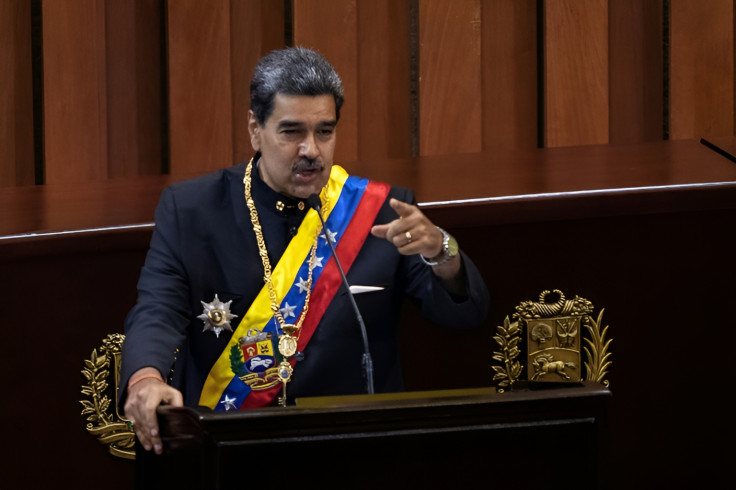
Venezuelan President Nicolás Maduro said that opposition members have a "group of hitmen" seeking to "harm" him as the July elections, the most significant challenge to his power in about a decade, approach.
Speaking during a TV appearance, Maduro singled out some of the country's top opposition leaders, including María Corina Machado, who was set to be the presidential candidate but was banned by the government-friendly Supreme Court from doing so. She has thrown her weight behind Edmundo González Urrutia, who was allowed to sign up and has since taken a commanding lead in the polls.
Maduro didn't provide any proof to back up his allegation, but went on to say that he can't call for political rallies in advance "for security reasons." He added that "the people take care" of him during such events, and "security teams are doing a good job, same as the civil-military-political union."
At the same time Maduro makes such statements, separate investigations have alleged that his own party is conducting a disinformation campaign against Machado, with state-controlled media and government propagandists creating montages that falsely depict U.S. flags at her rallies, Infobae reported.
Citing an investigation by Cazadores de Fake News (fake news hunters), the outlet aligns this with a broader strategy by regime leaders and propagandists to label Machado as a U.S. agent.
Cazadores de Fake News, led by Adrian Gonzalez, documented that the presence of U.S. flags at a Machado event in Cabudare, Lara State, on May 29, 2024, was orchestrated by Alexandra, a member of the Free Alex Saab Movement.
Photographs and videos from the event showed Alexandra coordinating with individuals carrying the flags, amplifying the false narrative.
Cazadores de Fake News highlighted that this disinformation tactic is part of a broader pattern. Since 2022, they have documented at least eight incidents where pro-government militants have attempted to discredit opposition leaders through staged events. These incidents are then magnified by pro-government media to sway public opinion.
The Venezuelan elections are in a somewhat unstable situation at the moment, as the government-friendly electoral council (CNE) recently withdrew the European Union's invitation to oversee the country's presidential elections claiming it would be "immoral" to allow so given its "neocolonialist and interventionist practices" with regards to the country.
The decision adds a new layer of uncertainty over the country's electoral process, as the long-entrenched government has long conveyed its reluctance to leave power. Top opposition members have also conceded that any transition would involve negotiations with the Maduro government, regardless of the potential electoral victory.
© 2025 Latin Times. All rights reserved. Do not reproduce without permission.





